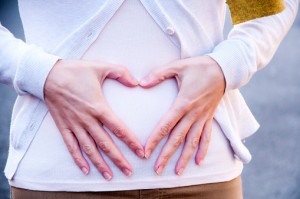Lose Weight > Common Sense To Lose Weight > Common Sense Article > Part Of Gastric Bypass Benefit Could Be Change In Gut Microbes
Part Of Gastric Bypass Benefit Could Be Change In Gut Microbes
Lee Kaplan, director of the Obesity, Metabolism and Nutrition Institute at Massachusetts General Hospital (MGH), and colleagues, write about their findings in the 27 March online issue of Science Translational Medicine.
Previous studies have shown that the gut microbes of obese people and rats are different to those of slim individuals.
And experiments in mice have also demonstrated that transferring samples of gut microbes from obese individuals into germ-free mice causes increase in weight and body fat.
"Our study suggests that the specific effects of gastric bypass on the microbiota contribute to its ability to cause weight loss and that finding ways to manipulate microbial populations to mimic those effects could become a valuable new tool to address obesity," says Kaplan in a statement.
Effects of Gastric Bypass Go Beyond Reducing Food Intake
Gastric bypass refers to a range of surgical procedures that rearrange the stomach and small intestine so they handle food differently. After a gastric bypass the patient's stomach is smaller and the food they eat no longer enters some parts of the stomach and small intestine.The result is the patient feels full with less food, and their body can't absorb all the calories from the food they eat.
But curiously, the effects of a gastric bypass go beyond those of just reducing the amount of food the patient can eat.
For instance, if you try to lose weight by dieting, you are likely to feel hungry and less satisfied after eating and crave high-fat and high carbohydrate foods. And your body may undergo metabolic changes that make it stubbornly hang on to that excess weight.
But patients who undergo gastric bypass surgery experience almost the opposite: they report feeling less hungry and more satisfied after eating, and they show more interest and desire for low-calorie foods. Plus they use up more energy after eating, and their hormone levels change to reflect those of appetite and hunger.
Previous studies have show that the mix of microbes in the gut of humans and mice change after gastric bypass surgery, and become more like those seen in slimmer individuals. But what is not clear is whether this is a result of the surgery or the subsequent weight loss.
The Study In Mice
So Kaplan and colleagues decided to investigate how the gut microbes change after bypass surgery. And to find out whether the changes result from the surgery, and how they contribute to the benefits of having the surgery.For their study they bred obese mice by feeding them a high-fat, high-carbohydrate diet, then put them into three groups. One group underwent a version of a common gastric bypass procedure known as the Roux-en-Y, while the other two had sham operations where some of their gut was cut away then reattached.
One of the groups of mice that had the sham procedure continued on the high-fat, high-carbs diet, while the other group was put on a weight reducing lower calorie diet.
By one week after surgery, the bypass mice were showing significant differences in their gut microbe population. There was a shift toward more of the bacteria found in slim individuals and less of those found in obese individuals.
By three weeks after surgery, the bypass mice had shed 30% of their body weight.
And the two groups of mice who had the sham operations showed no change in their gut microbes, even though the group on the calorie-restricted diet shed the same amount of weight as the bypass mice.
Tests on the mice's metabolism also showed that the bypass mice were using up more energy than the mice who had the sham operations, even though their physical activity levels were the same.
Kaplan and colleagues then took gut samples from each of the three groups of mice and transferred them into mice that had been bred to have no microbes in their gut.
After two weeks, the germ-free mice that had received gut samples from the bypass mice had shed a significant amount of weight.
But the germ-free mice that received gut samples from the mice that had sham operations (including the group that had lost the same amount of weight as the bypass mice) stayed the same weight.
Clue May Lie In Short-Chain Fatty Acids
The researchers did not investigate how changes in gut microbes cause weight loss, and suggest this is a question that needs to be answered with further studies.But they did find some clues. For instance, there were differences in the amounts of short-chain fatty acids in the guts of the mice, causing the researchers to wonder if different mixes of microbes process food differently and in such a way that this causes differences in overall metabolism; particularly since we already know short-chain fatty acids help regulate metabolism.
Kaplan, who is also associate professor of Medicine at Harvard Medical School, says we need to find out a lot more about how changes in gut microbes brought about by gastric bypass cause changes in metabolism.
For instance, gastric bypass surgery results in improvements to diabetes and other metabolic disorders. So to what extent are these improvements the result of changes in gut microbes?
"... and then, we we need to learn if we can produce these effects, either the microbial changes or the associated metabolic changes, without surgery," says Kaplan.
"The ability to achieve even some of these effects without surgery would give us an entirely new way to treat the critical problem of obesity, one that could help patients unable or unwilling to have surgery," he adds.
Funds from the National Institutes of Health and Ethicon Surgical Care helped finance the study.
In another recent study involving gut microbes and the gases they produce, researchers found that a breath test may indicate how susceptible a person is to developing obesity.
Written by Catharine Paddock PhD
Related Articles
-
Weight Loss Tips for Obese People
Losing those extra kilos is not an easy task. Especially, when you hav
-
How to Prepare Your Healthy Weight Loss Plan
Fearing will take you nowhere; find out how you can prepare well to lo
-
How To Lose Weight And Feel Great!
Just thinking about or planning some strategy of weight loss can
-
An item to Think of regarding Prior to And As a result of Liposuction procedures
If you’re seeking pertaining to ways to not simply shed bodyweig
-
2 Strategies to Lose Fat Quickly
One of the most challenging ordeals that everybody will have to do
-
Healthy Greater Weight Loss
Healthy weight loss at young age prevents the onset of many lifestyle
- DON'T MISS
- How To Lose Weight Quick Without Being On A Diet
- You’ll never guess who’s most important to your good health…
- Why Diets Don’t Work
- Are You A Winner Or Loser At Fitness
- End The Weight Gain: Try Weight Loss Solutions That Last
- Best Weight Loss Tips - Weight Loss Success The Healthy Way
- The Secrets of Weight Loss Success
- Stabilizing Your Blood Sugar, Fiber and Losing Weight
- Abdominal Flattening Workouts
- Isometrics Is The Key To Success - Fad Diets, Quick Weight Loss ... Ultimate Failure




